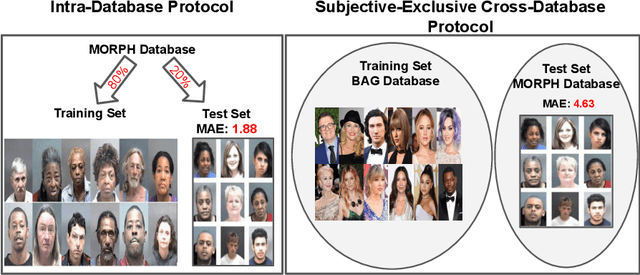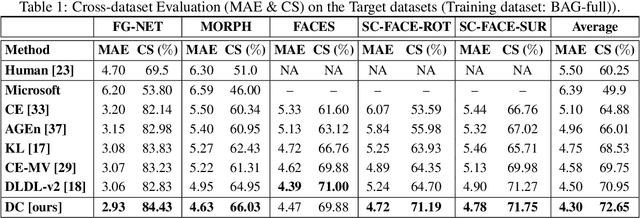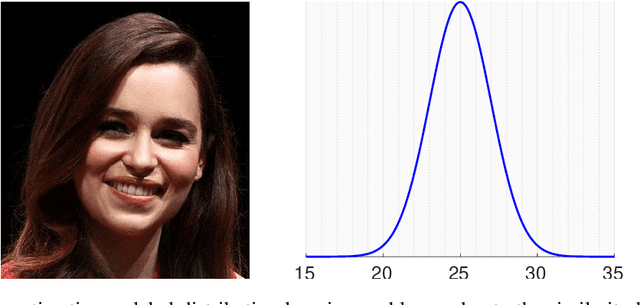A Flatter Loss for Bias Mitigation in Cross-dataset Facial Age Estimation
Paper and Code
Oct 26, 2020



The most existing studies in the facial age estimation assume training and test images are captured under similar shooting conditions. However, this is rarely valid in real-world applications, where training and test sets usually have different characteristics. In this paper, we advocate a cross-dataset protocol for age estimation benchmarking. In order to improve the cross-dataset age estimation performance, we mitigate the inherent bias caused by the learning algorithm itself. To this end, we propose a novel loss function that is more effective for neural network training. The relative smoothness of the proposed loss function is its advantage with regards to the optimisation process performed by stochastic gradient descent (SGD). Compared with existing loss functions, the lower gradient of the proposed loss function leads to the convergence of SGD to a better optimum point, and consequently a better generalisation. The cross-dataset experimental results demonstrate the superiority of the proposed method over the state-of-the-art algorithms in terms of accuracy and generalisation capability.
 Add to Chrome
Add to Chrome Add to Firefox
Add to Firefox Add to Edge
Add to Edge